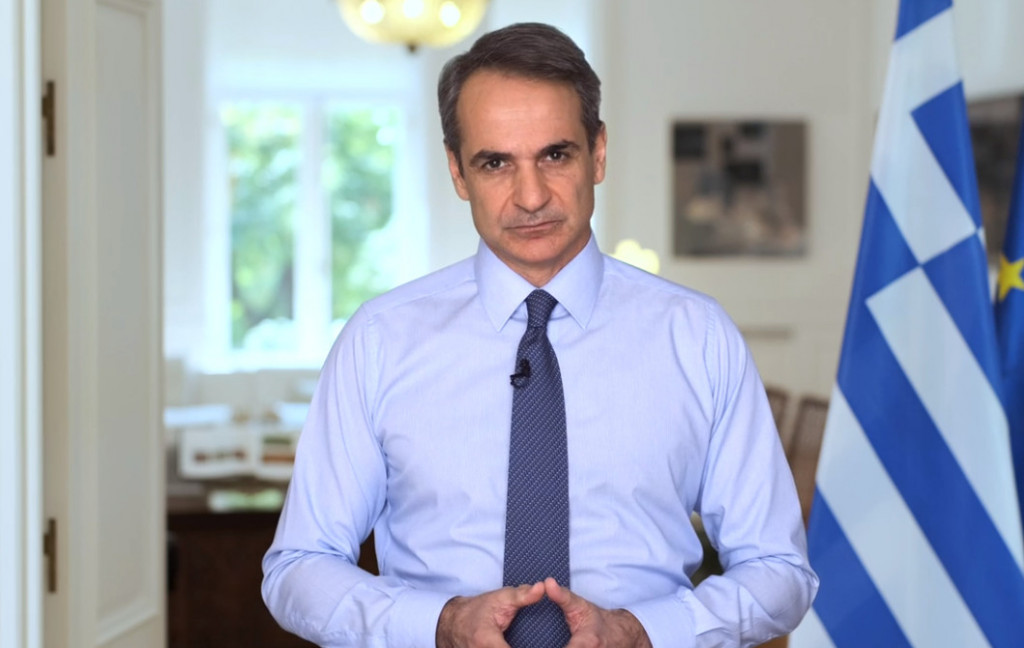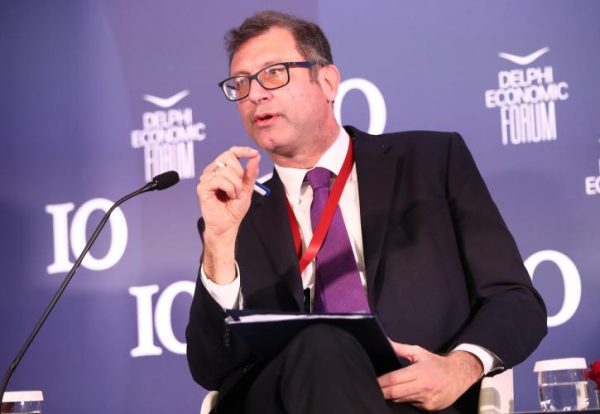
Greek Prime Minister Kyriakos Mitsotakis on Wednesday, as widely expected, announced an increase in the minimum monthly wage for full-time employment in the country, effective on May 1, and binding for all employers.
As such, the current full-time minimum monthly wage increases from 663 euros to 713 euros.
Mitsotakis said the hike, along with a previous uptick in January, means a total increase of 9.7 percent this year, compared to the same wage scale in 2021.
The pro-business and reform-minded Mitsotakis, as well as his center-right government, has faced rising discontent over unprecedented – by Eurozone standards – inflation over the past few months and skyrocketing energy costs – a phenomenon charted in late 2021 but exasperated with the Russian invasion of Ukraine in late February 2022.
The increase will affect roughly 650,000 wage-earners in the country of approximately 11 million, and equals roughly another month’s worth of pay.
Mitsotakis also noted that this decision, which was taken “in a spirit of responsibility and solidarity” towards wage-earners, is a decision aimed to protect social cohesion and to prevent setbacks in achieved progress so far.
The Greek premier said a recurring theme during his contacts around the country with young wage-earners earning the minimum salary is the pressure they face to make ends meet.
“The common anxiety I see in people’s faces is the high cost of living due to the global energy crisis and the war in Ukraine; (high) electricity rates, at the supermarket shelf and at the gas pump,” he said.
In announcing the hike in a televised address, Mitsotakis conceded that “wages are still very low in our country … as the wounds of the 10-year economic crisis have yet to heal, while the global surge in inflation rates is hitting the lower-paid and the unemployed first.”
At the same time, he reminded that since July 2019, when ND assumed the country’s reins, “the unemployment rate has been sliced by five percentage points, despite the successive crises that have occurred during that time.”
Latest News

PM Meloni Meets Vice President Vance in Rome Signalling Optimism on Ukraine Talks
Meloni emphasized the strength and strategic value of the Italy-U.S. partnership.

Airbnb: Greece’s Short-Term Rentals Dip in March Amid Easter Shift
Data from analytics firm AirDNA shows that average occupancy for short-term rentals dropped to 45% in March, down from 49% the same month last year.

Easter Week in Greece: Holy Friday in Orthodoxy Today
At the Vespers service on Friday evening the image of Christ is removed from the Cross and wrapped in a white cloth

Meloni and Trump Meet in Washington, Vow to Strengthen Western Ties
“I am 100% sure there will be no problems reaching a deal on tariffs with the EU—none whatsoever,” Trump stressed.

ECB Cuts Interest Rates by 25 Basis Points in Expected Move
The ECB’s Governing Council opted to lower the deposit facility rate—the benchmark for signaling monetary policy direction—citing an updated assessment of inflation prospects, the dynamics of underlying inflation, and the strength of monetary policy transmission.

Current Account Deficit Fell by €573.2ml Feb. 2025: BoG
The improvement of Greece’s current account was mainly attributed to a more robust balance of goods and, to a lesser extent, an improved primary income account

Hellenic Food Authority Issues Food Safety Tips for Easter
Food safety tips on how to make sure your lamb has been properly inspected and your eggs stay fresh.

Greek Kiwifruit Exports Smash 200,000-Ton Mark, Setting New Record
According to data by the Association of Greek Fruit, Vegetable and Juice Exporters, Incofruit Hellas, between September 1, 2024, and April 17, 2025, kiwifruit exports increased by 14.2%.

Easter Tourism Boom: Greece Sees 18.3% Surge in Hotel Bookings
Among foreign markets, Israel has emerged as the biggest growth driver, with hotel bookings more than doubling—up 178.5% year-on-year.

Greece to Launch Fast-Track Tender for Offshore Hydrocarbon Exploration
Last week, Papastavrou signed the acceptance of interest for the two Cretan blocks, while similar decisions regarding the two Ionian Sea blocks were signed by his predecessor







![Πλημμύρες: Σημειώθηκαν σε επίπεδα ρεκόρ στην Ευρώπη το 2024 [γράφημα]](https://www.ot.gr/wp-content/uploads/2025/04/FLOOD_HUNGRY-90x90.jpg)





![Airbnb: Πτωτικά κινήθηκε η ζήτηση τον Μάρτιο – Τι δείχνουν τα στοιχεία [γράφημα]](https://www.ot.gr/wp-content/uploads/2024/07/airbnb-gba8e58468_1280-1-90x90.jpg)



























 Αριθμός Πιστοποίησης
Αριθμός Πιστοποίησης